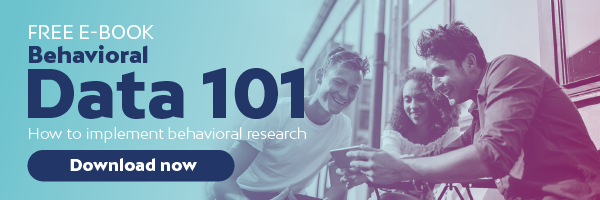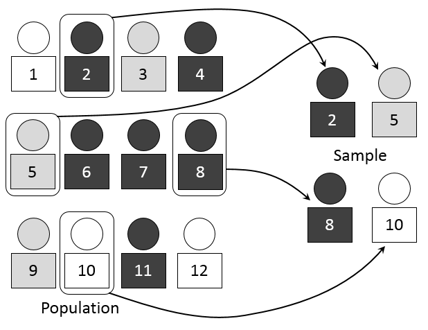Today is April 23rd, a very special day for us. Here in Barcelona, the city where Netquest was born around 17 years ago, we celebrate Sant Jordi (Saint George).
I can’t be very objective on this issue, but I honestly think that Sant Jordi is one of the most beautiful and spiritual celebrations in the world; for its simplicity and symbolism. Every 23rd of April, men give women a rose and women give men a book. Over time, this tradition has evolved to go both ways.
This celebration coincides with international book day, recognized by UNESCO since 1996 on April 23rd, a day when two of the greatest literature authors passed away: Miguel de Cervantes and William Shakespeare.
This post is dedicated to books, objects of worship in all its beauty. Books are at the origin of our evolution as a species that preserve and transmit knowledge and culture, which are values intimately connected to our profession: research.

Taking this day into account, the Netquest team wants to offer you a list of 7 books that every market researcher should read. It is a free of choice, a multidisciplinary list that includes books on statistics, thinking, behavioural psychology and even a novel.
We hope you like them:
1. Statistical Rethinking: A Bayesian Course, Richard McElreath.
Represented as a masterpiece of pedagogy, much more than a practical book on bayesian statistics. Through simple practices, McElreath leads us on a journey that leads us to understand in depth what a predictive process is. This work combines a critical look at many practices valued today which makes it a great and entertaining lecture, something rare to find in an academic book.
2. Weapons of Math Destruction, Cathy O'Neil.
Big Data is changing everything and offers us unlimited possibilities, but... to improve our way of living? O'Neil warns us of the dangers that we face as a society: extenze inequality and low-quality democracy. The algorithms are never neutral, collect prejudices, ideologies and objectives of their creators. Interesting reflection for researchers: are we designing really objective statistical models? Or do we echo our clients' own beliefs?
3. Homo Deus: A brief history of tomorrow, Yuval Noah Harari.
After bringing out his brilliant book Sapiens, a shocking history of humanity, Harari shares his vision of the human being’s future. Once the great enemies of the past have been defeated (hunger, disease, and war), man will become the first owner of his destiny. A destination dominated by artificial intelligence and its - expected - brutal impact on society. Undoubtedly, a must-read book for any researcher who wants to put his work in context in the next years.
4. Ggplot2: Elegant Graphics for Data Analysis. Hadley Wickham.
The new market researcher faces several challenges. One of them is to adopt statistical analysis languages such as R or Python, which requires programming skills instead of choosing options in a prefabricated menu. The difficulty is big, but the reward is even bigger. This book helps us in one of the most powerful (but difficult) phases of the new tools: the creation of graphics. Ggplot is a powerful graphical library that adopts a new paradigm in the visual representation of data. Nothing better than having Wickham, one of the greatest contributors of R and great pedagogue, to help us on this journey.
5. Thinking, Fast and Slow. Daniel Kahneman.
Yes, of course, you've probably heard about Kahneman to the point of satiety. As we said in another post, any speaker at an event dedicated to market research quotes Kahneman. But put it another way: for a reason "Thinking, Fast and Slow" is a dense book, but of enormous academic and practical value. Kahneman shows us the failures of our cognitive system. Your job will be to understand the implications - which are many - for market research. A practical utility book in our professional day to day.
You’re probably thinking ... really? Are you recommending “1984” as a reading for researchers? I think Orwell's novel demonstrates the present more than ever. Issues such as the loss of control of our data or the ability of some governments/rulers to rewrite history, creating new "truths" on demand, connects us fully with the Orwellian world. The famous ministry of truth may already exist somewhere.
7. Superintelligence: Paths, Dangers, Strategies. Nick Bostrom.
Could it be that we are heading to a world in which our existence and presence are dominated by superintelligence? Bostrom proposes future scenarios in which artificial intelligence surpasses human intelligence. A Disturbing reflection of a theme already addressed by the fathers of science fiction (Isaac Asimov and his rules of robotics).
Behavioral Data 101. Netquest.
We want to make our small contribution to the research industry. Research with digital behaviour data is one of the most promising new research methodologies. This didactic ebook will help you understand what behavioural research is and how you can use it an effective way.






